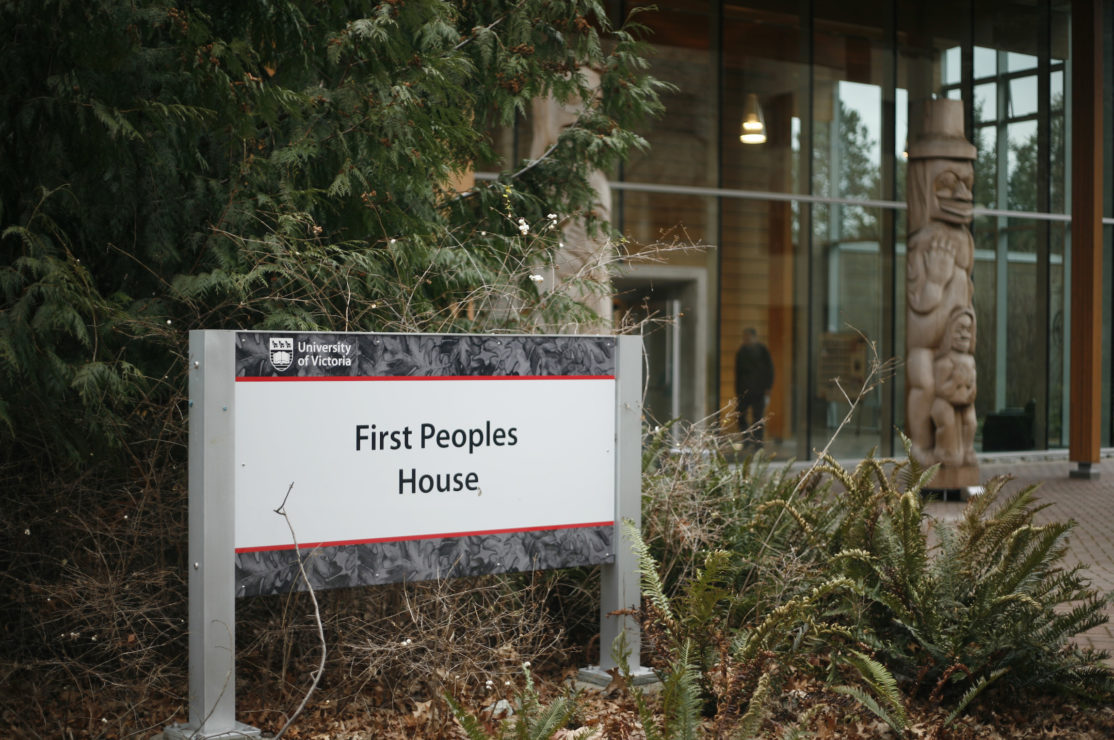Proposed policy framework provides new insights

In the spring of 2017, I decided to put pen to paper and apply to the University of Victoria’s inaugural graduate certificate program in Indigenous Nationhood. My reasons were threefold. First, a personal connection with a residential school survivor prompted me to confront both my white, cisgendered male privilege, and the courage to act, rather than be a reconciliation tourist. Second, I needed to confront my own lack of knowledge and understanding about the history and present of Indigenous relations without expecting anyone else, Indigenous or otherwise, to do it for me. Third, I was attracted to the stellar Indigenous scholars leading the program and the fact that the Indigenous Nationhood program was both interdisciplinary and right on my doorstep.
Two challenging, thought provoking, and outstanding years later I am poised to graduate. For the first time in my academic career I trusted myself to the process of the program, as each course opened new doors, windows, and landscapes that were deeply intellectual but also emotionally and spiritually challenging and rewarding.
Through the Certificate in Indigenous Nationhood program, I have taken small steps to deepen my understanding of Indigenous history, ways of knowing, worldview, and ongoing contributions and challenges. At the outset, I felt that only through engaging in this journey of knowledge, connection, and understanding would I know what I was being called to contribute. Each step revealed new challenges, opportunities, and perspectives. The Indigenous Nationhood program, beyond my personal decolonization practice and engagement in faculty-centered Indigenization and decolonization activities, has served as a profound un-learning and re-learning experience. Self-reflective and consciousness-raising opportunities created many moments of genuine unsettlement.
One of the many lessons that came my way as I embarked on this journey was the importance of establishing a meaningful, respectful, reciprocal, and long-term relationship with community. Over time, I realized that my connection with community and Indigenous relations was not “out there,” but like the insidious, pervasive nature of colonialism, it was everywhere around me, specifically in the university.
While universities have appropriately increased their focus on and support for Indigenous students and Indigenous intellectual engagement, there is often only a passing reference to meaningful nation-to-nation governance and Land relations. (Note: land is deliberately capitalized here to incorporate land, waterways, facilities, and non-human relations).
This realization led me to develop a university-Indigenous relations policy assessment framework across four dimensions: external (nation-to-nation) relations; university-Indigenous governance; internal Indigenous relations, and Land relations.
The purpose of this proposed policy assessment framework is to assist both universities and Indigenous nations to assess their relationships, identify concrete actions, and — most importantly — to mutually be held accountable. Each dimension has been expanded in my complete capstone paper with specific questions to help universities and Indigenous communities assess the extent to which each dimension is being addressed. Below are examples from each of the four dimensions:
- External Indigenous relations: Does the university negotiate and follow the host nation’s accountability protocols?
- University-Indigenous governance: To what extent is the university, as a Crown-sanctioned educational institution, fulfilling its duty to consult and accommodate?
- Internal Indigenous relations: Do tenure and promotion policies support Indigenous pedagogy, research, and ways of being?
- Land relations: Are Indigenous principles and protocols applied in the design, development, and use of all university facilities, spaces, and Lands?
The framework has been applied to both the University of Victoria and Algoma University. Both institutions are recent hosts of reconciliation conferences, and I hope that others find value in this tool. It is not my place to assess these relationships. That is the work of the universities and the Indigenous nations with whom they are building relationships. However, here are some closing questions that universities and Indigenous nations could ask themselves as they reconcile their respective obligations in relation to post-secondary education:
- Are universities building relationships with Indigenous peoples in the context of Indigenous-centered nation-to-nation relations?
- To what extent and in what ways are universities accountable to First Nations, Inuit & Métis?
- How can university policies and practices create the potential for deep, respectful, reciprocal, relevant, and long-term Indigenous reconciliation?
- Can universities become genuine and substantive sites of Indigenous ways of knowing and being?
Indigenous principles of respect, relevance, reciprocity, and responsibility lie at the heart of university-Indigenous relations. As in the development of any long-lasting and meaningful relationship, asking the right questions can be the first step in building a better future together.






